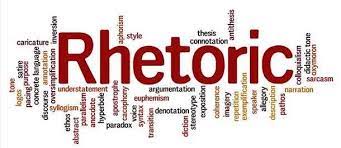Introduction
Embarking on the journey of mastering the art of deductive essay writing is akin to becoming a skilled detective in the world of academia. Like a detective who unravels a captivating mystery, a deductive essay writer systematically pieces together evidence to construct a compelling argument. In this comprehensive guide, we will navigate through the intricate steps of crafting a deductive essay that ensures Academic excellenceand is thought provoking at the same time
I. Decoding Deductive Essays: Unveiling the Basics
Before we plunge into the detailed steps of crafting a deductive essay, let's uncover the essence of this unique form of writing. Picture yourself as a detective, solving a puzzle where each piece of evidence leads you closer to the truth. A deductive essay operates on a similar principle, requiring you to analyze individual factors and synthesize them to draw a logical conclusion. it's similar to a game of chess ,only difference is you control all chips.
II. Understanding the Three Pillars: Premise, Evidence, Conclusion
To unravel the mysteries of deductive essay writing, one must first comprehend its fundamental elements. Just as a skilled detective relies on clues, a deductive essay consists of three crucial parts: premise, evidence, and conclusion. These pillars form the backbone of your argument, demanding a meticulous examination of each component.
III. Cracking the Assignment Code: Unraveling Requirements
Embarking on a deductive essay without deciphering the assignment requirements is akin to navigating uncharted waters blindfolded. The key to success lies in decoding your instructor's expectations. You need to carefully understand the assignment prompt prior to writing. Let's explore the crucial steps to ensure you grasp the purpose and nuances of the assignment, setting the stage for a stellar essay.
Understanding your assignment involves deciphering content words and limiting words. Content words reveal the ideas forming the basis of your assignment, while limiting words define the scope. Before writing, clarify any doubts with your instructor and grasp the purpose and expectations of the assignment.
IV. Crafting a Blueprint: The Thinking Stage
Just as a detective plans their investigation, the thinking stage of a deductive essay is your chance to map out your approach systematically. From choosing a compelling topic to conducting meticulous research, this stage lays the foundation for a well-constructed and logically sound essay. A great blueprint will make your work easier and will help with the flow of ideas fro start to finish
A. Choosing the Right Topic: The Cornerstone of Your Investigation
Selecting a topic for your deductive essay is akin to choosing the right puzzle to solve. It must be intriguing, manageable, and align with your expertise. Let's explore the art of choosing a topic that not only resonates with your interests but also captivates your audience.
Choosing a topic involves considering the aim of your essay, the required sources, the assignment's length, and the deadline. Opt for a narrow topic to facilitate focused research, ensuring a manageable and well-organized essay.
B. Delving into the Depths: Thorough Research as Your Investigative Arsenal
A detective armed with outdated or incomplete information is bound to fail. Similarly, thorough research is your investigative arsenal when crafting a deductive essay. Join us as we explore the art of gathering relevant data and organizing it logically to fortify your deductive reasoning.
Conducting thorough research involves examining both primary and secondary sources to support your arguments with factual information. This step is crucial for deductive reasoning, where every argument should be backed by evidence leading to a logical conclusion. Take notes during your research, including essential details like title, authors, publication dates, and initial analysis.
C. The Art of Deductive Thesis Crafting: A Blueprint for Success
Every detective needs a compelling theory to guide their investigation, and in the deductive essay realm, a strong thesis statement plays that role. Let's unravel the art of formulating a thesis statement that serves as the backbone of your deductive argument.
Formulating a strong thesis statement involves using your essay topic, phrasing it as a question, and polishing it to meet the characteristics of a strong thesis—precision, forcefulness, confidence, and provability. Your thesis statement should encapsulate the deductive reasoning approach you will employ in your essay, providing clarity and focus.
V. Constructing the Case: The Writing Process
With your deductive investigation meticulously planned, it's time to put pen to paper. The writing process is where your carefully gathered evidence and logical reasoning converge to create a persuasive argument
A. Introduction: Setting the Stage with a Captivating Hook
The introduction is the gateway to your deductive argument, and just like a detective's opening statement, it must grab the reader's attention. We'll explore the art of crafting an engaging introduction that entices your audience from the very first sentence.
Crafting an introduction involves incorporating an attention-grabbing hook, question, anecdote, or story related to the topic—something that sparks immediate curiosity. This sets the stage for your deductive argument, providing a roadmap for what the reader can expect.
B. Body Paragraphs: Building a Solid Foundation with Logical Reasoning
In the deductive essay landscape, each body paragraph is a piece of evidence meticulously presented to support your argument. Join us as we dissect the anatomy of a deductive essay paragraph, focusing on clarity, logical transitions, and compelling evidence.
Each body paragraph should start with a topic sentence introducing a specific piece of evidence or reasoning. Follow this with a detailed explanation of the evidence's relationship to the premise and how it supports your thesis. Provide specific examples, statistics, or expert opinions to solidify your reasoning, ensuring relevance to the topic. Conclude each paragraph with an analysis and interpretation of the evidence, addressing potential counterarguments.
C. Conclusion: Closing the Case with Impactful Closure
The conclusion is your chance to leave a lasting impression, much like a detective concluding their investigation with a memorable closing statement. We'll explore the essential elements of a deductive essay conclusion, ensuring it reinforces your thesis, summarizes key points, and leaves a lingering impact on your reader.
Crafting a compelling conclusion involves restating your thesis using different words, summarizing the main ideas and evidence from the body paragraphs, offering final reflections on the discussed issue, and providing a call to action or recommendations for future research. Strong closing sentences should leave readers pondering the complexities of the topic.
VI. Polishing the Verdict: Editing and Proofreading
Just as a detective meticulously reviews their case file before presenting it in court, your deductive essay demands careful editing and proofreading. In this section, we'll unravel the crucial steps to evaluate your work objectively and eliminate errors that might cloud your deductive argument.
A. Evaluating Your Work: The Detective's Critical Eye
Evaluating your deductive essay is like a detective scrutinizing their case for any overlooked clues. Join us as we guide you through a comprehensive review, focusing on logical coherence, argument clarity, and overall effectiveness.
Evaluate your work with a fresh perspective, leaving it aside for a day or two
Common Pitfalls and how to Navigate them
| PITFALL | REMEDY |
| 1.Poor Preparation | Understand the assignment prompt, Seek professional Homework help from reputatble tutors |
| 2. Complicated language | Simplicity is the ultimate sophistication so keep it simple |
| 3. Poor Citation and Referencing | Seek the services of a competent essasy writer |
| 4.Not staying on topic | Create Clear objectives before you begin writing |
k
Customers
43%k
Orders
29%%
Happy users
5%


